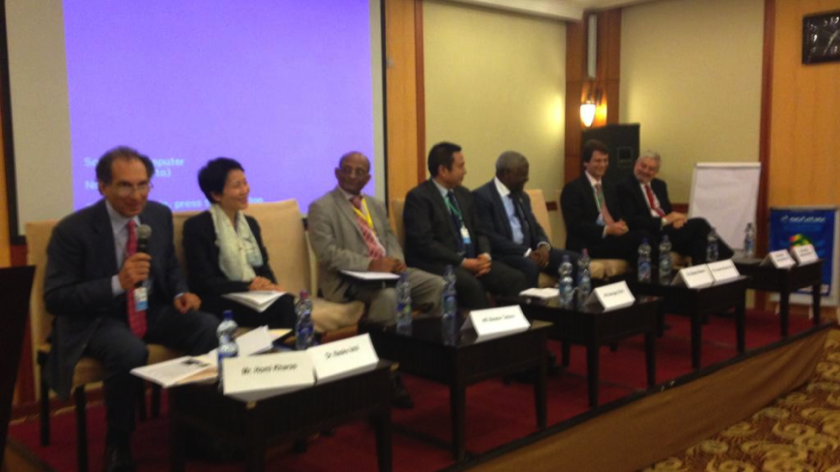
Washington, DC/Addis Ababa, Tuesday, July 14 - At the sidelines of the Third International Conference on Financing for Development, the Global Environment Facility (GEF) brought together representatives from governments, think-tanks and development organizations to discuss the importance of ensuring sustainability of the natural capital in order to achieve ambitious development targets such as ending extreme poverty and hunger by 2030 in a rapidly populating and urbanizing world.
Panelists shared their perspectives on how the GEF’s Integrated Programs on Sustainable Cities and Food Security will address gaps and priorities for sustainable development embedded in their respective organizations or national development plans. Accepting that a new, more proactive, and partnership-based approach is needed to address drivers of global change, panelists also explored how effective partnership towards sustainable development can be promoted through these programs. .
“Sustainability of the natural capital — land, water, soil, trees, and genetic resources — is critical to delivering enhanced rural and urban development benefits. Numbers or financial commitments are one thing but to catalyze action on ground, we must identify the right partnerships and interventions for strategic impact. Our latest interventions in ensuring food security and sustainable urban development will amplify the global community’s efforts.” said Naoko Ishii, CEO and Chairperson.

The Food Security Integrated Program aims to work with small-scale farmers to sustainably increase yields thereby increasing food security for millions of poor people, while preventing desertification, improving land health, and sequestering carbon. The program, coordinated by the International Fund for Agricultural Development (IFAD) and in partnership with UNDP and several other Agencies, will work to create and strengthen institutional frameworks and scale-up proven solutions. With time, this program is expected to deliver significant benefits in poverty reduction, particularly among the poorest of the poor and women. The program provides GEF grant of $120 million to 12 countries in Sub-Saharan Africa, leveraging an additional $805 million.
Kanayo Nwanze, President of IFAD said: “If 80% of food in Africa is produced by smallholder farmers in rural areas, you cannot have sustainable cities without transforming rural areas and increase productivity in agriculture.”

The Sustainable Cities Integrated Program is a unique global initiative to work with cities to address the challenges of a rapidly urbanizing world and the subsequent pressure on cities through integrated urban management. The program will demonstrate how innovation and high impact investments can contribute to a sustainable management of cities. This ambitious five-year endeavor is a partnership of the GEF, 23 cities from 11 countries, and city-based networks, together with regional development banks, UNDP, and others. The program provides GEF grant of US$145 million and $1.5 billion of co-financing.
“Planning and investment decisions made today will influence living and consumption patterns for the next half century”, said Magdy Martinez-Soliman, Assistant Administrator of UNDP.
Contact: Christian Hofer, Senior Communications Officer, GEF, chofer@thegef.org.
About the Global Environment Facility
The Global Environment Facility is a partnership for international cooperation where 183 countries work together with international institutions, civil society organizations and the private sector, to address global environmental issues. Since 1991, the GEF has provided $13.5 billion in grants and leveraged $65 billion in co-financing for 3,900 projects in more than 165 developing countries. For 24years, developed and developing countries alike have provided these funds to support activities related to biodiversity, climate change, international waters, land degradation, and chemicals and waste in the context of development projects and programs.